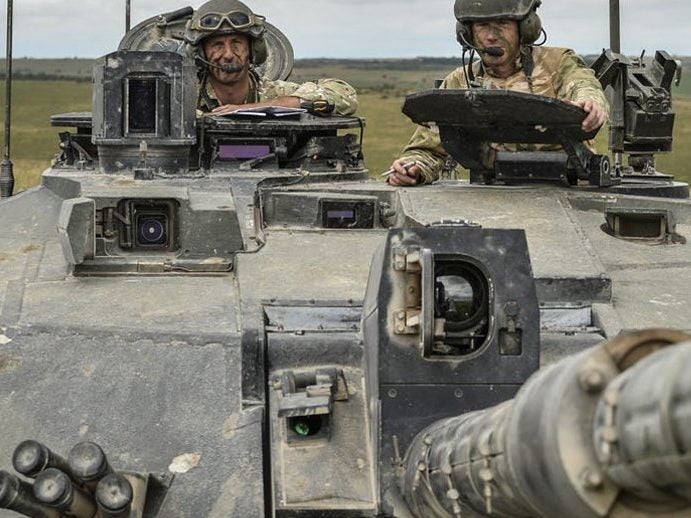
The UK’s Ministry of Defence (MOD) has appointed former Chief of Defence People, Lieutenant General Richard Nugee, to lead a review into the British Armed Forces’ climate change policy.
The review is set to spearhead initiatives within the MOD to help it tackle climate change. Nugee will examine how the Ministry can ‘better incorporate climate change and sustainability considerations into defence’s processes and policy decisions.’
A key focus of the review will be helping the MOD work towards the UK Government’s goal of having net-zero carbon emissions by 2050.
Announcing the review, Nugee said: “The effect of climate change will challenge how our Armed Forces operate today and will need to operate in the future; we need to act now to understand and prepare for the changes that have to be made.
“At the same time, we must reduce our own emissions to help the nation reach its net-zero 50 commitment.”
All areas of the MOD are looking at measures to reduce their carbon footprint. Last week, DASA announced an initiative to mitigate the effects of wind farms on air defence radar to help the UK reach another goal of expanding renewable energy output.
How well do you really know your competitors?
Access the most comprehensive Company Profiles on the market, powered by GlobalData. Save hours of research. Gain competitive edge.

Thank you!
Your download email will arrive shortly
Not ready to buy yet? Download a free sample
We are confident about the unique quality of our Company Profiles. However, we want you to make the most beneficial decision for your business, so we offer a free sample that you can download by submitting the below form
By GlobalDataNugee added: “I will be looking at all elements of defence, from equipment to infrastructure, our processes, functions and behaviours to ensure that we develop a response that is built on much of the good work that we are already doing.”
Announcing the move, the MOD said that climate change was rapidly altering the environments the UK operates in. The MOD said: “Our Armed Forces, for example, need to be prepared to operate more often in the Arctic region as ice sheets recede and Russian submarine activity increases. Our forces are increasingly called upon to assist with natural disasters across the globe and they need to be able to operate in environments that will and are experiencing more extreme weather patterns.”
The MOD is one of the UK Government’s largest contributors of greenhouse gas emissions, stemming from the operation of large fleets of ships, vehicles and aircraft as well as its estate of housing and bases.
Nugee said: “Much of the success of our response will rest on our ability to motivate and harness the passion and enthusiasm of our people and the capabilities of our allies and industrial partners.”



